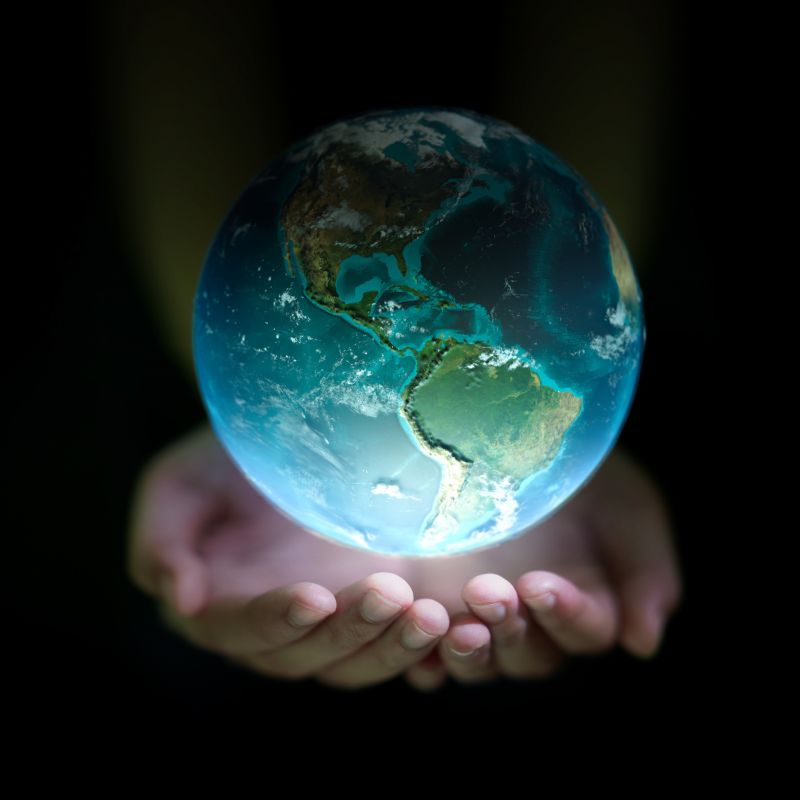Note: This is another in a series of blogs related to a book project I’ve been writing for some months. The book is called, The Slightly Older Person’s Guide to Graceful Aging.

Though there is only one universe, the quality of our thinking can determine which one one of two conceptual universes we seem to inhabit.
There’s the universe of one, and the universe of oneness. Though they may sound alike, they’re as different as our concepts of heaven and hell.
The universe of one depends on an illusion most of us take as truth: that we’re all separate individuals with no underlying connection to one another. In other words, our sense of “I” ends at the borders of our bodies. This is what Alan Watts referred to as the “skin encapsulated ego.”
People who inhabit this conceptual universe tend to experience loneliness and isolation. There’s also a sense of desperation, of trying to feel complete. But how can you feel complete when the only aspect of yourself that seems real to you is your individuality?
People who believe they inhabit the universe of one spend a great deal of their time and energy trying to regain a feeling of wholeness, completeness, and safety. Even though they are often highly successful, people who inhabit this version of the universe are likely to have difficulty feeling at home in themselves.
It’s helpful to remember that the ego’s job is to protect us from seeing the truth of who we really are. The ego thrives on a diet of specialness. This feeling of specialness is what prevents us from appreciating that each of us is an aspect of the same, single consciousness, a localization of that single consciousness, not an isolated entity.
The other conceptual universe? Everyone has probably experienced living in it at one time or other. We “live” in that universe every time we stop thinking about ourselves and just live our lives. This universe is especially apparent when we’re with friends, family, or people we feel close to. Our minds relax, and we feel at home in ourselves, and connected to the people and environment around us. We’re at our best.

Not surprisingly, when we see this truth about our connectedness, we tend to be respectful of ourselves, of others, and of the planet. Why would you abuse a person or environment you recognize as another aspect of the same consciousness that animates you?
Laid out this plainly, it’s difficult to believe anyone would knowingly choose the universe of one over the universe of oneness. The ego is so busy doing its job of keeping us feeling separated from one another, that feeling one with everyone and everything can feel like a threat, as though we’re losing ourselves. But we’re not losing anything, we’re just going beyond our ego, beyond our personal psychology to a more truthful experience of who we really are. The absolute truth of this is obvious when we’re in that connected feeling, because the sensation we have is being at one with life.
Here’s the strangest part of all; whichever of these conceptual universes you inhabit dictates the experience of life you have, and is a self-validating system. If we feel isolated from everyone and everything, our experiences in life will be read as confirming that feeling. In other words, if that’s the concept you choose to believe, that’s exactly the experience you’ll have.
The same is true for the universe of oneness. If that’s what seems true to you, your experience of life will seem to provide irrefutable evidence of that truth.
The universe of one always makes us feel like less than we really are. The universe of oneness fills us with a good feeling, because we’re in alignment with a deeper reality. One of them feels bad, the other feels good. By deciding how you want to feel as you go through your life, you can easily figure out which of these two “universes” you want to give your focus and energy.

If you would like to know when The Slightly Older Person’s Guide to Graceful Aging comes out, please click here to put your name on the list. To read my other articles, click here.



